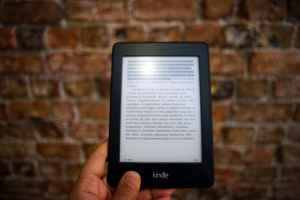Journey Through the Pages: My Literary Odyssey
In the tapestry of life, memories weave intricate patterns, shaping our identities and illuminating our paths. For me, the earliest threads of these memories are inextricably intertwined with the worlds I discovered within the pages of books. From the grand sagas of ancient India to the poignant reflections of contemporary Latin America, my literary journey has been a voyage of exploration, transformation, and profound connection.
My Earliest Reading Memory: The Mahabharata
In the 1980s, my childhood home in northern India, like many upper-caste households, held clothbound copies of a Hindi translation of the Mahabharata, an epic Sanskrit poem. As a child, I immersed myself in its volumes, poring over the sketches of its protagonists and rereading it countless times. This early encounter with imaginative literature left an indelible mark on my young mind, shaping my future literary journey.
The Mahabharata, with its sprawling cast of characters, intricate plotlines, and profound philosophical insights, became a portal to a world beyond my immediate surroundings. I was captivated by the tales of valor, betrayal, love, and loss, and I found myself drawn into the moral dilemmas faced by its characters. The epic’s exploration of dharma, or righteous conduct, resonated with me deeply, and it instilled in me a lifelong fascination with the complexities of human nature.
My Favorite Book Growing Up: Russian and Ukrainian Folktales
During my formative years, I cherished a collection of Russian and Ukrainian folktales purchased from bookstores subsidized by the Soviet Union, which sought to showcase the richness of Russian literature in the midst of the cultural cold war. I spent hours delving into fairy tales printed in Moscow, and later ventured into English and Hindi translations of the great Russian writers, including Chekhov, Tolstoy, Dostoevsky, Turgenev, and Bunin.
These stories, steeped in the traditions and folklore of Eastern Europe, transported me to enchanted forests, introduced me to cunning tricksters and wise fools, and taught me valuable lessons about life. I was particularly drawn to the works of Chekhov, whose short stories captured the nuances of human relationships with remarkable precision and empathy. His ability to illuminate the inner lives of his characters, even within the confines of a few pages, left a lasting impression on me.
The Book that Changed Me as a Teenager: “An Area of Darkness” by V.S. Naipaul
At the age of 16 or 17, I encountered V.S. Naipaul’s “An Area of Darkness,” which left a profound impact on me. Naipaul’s raw honesty in examining his ancestral country and people, coupled with his unflinching exploration of his own emotions and neuroses, was a revelation. The book not only expanded my literary horizons but also served as a masterclass in literary form, demonstrating how travel writing could encompass profound emotional and intellectual content.
Naipaul’s unflinching portrayal of the complexities of postcolonial societies challenged my preconceived notions and forced me to confront uncomfortable truths about my own country. His willingness to delve into the darker aspects of human nature, both individual and collective, left me deeply unsettled yet profoundly moved. “An Area of Darkness” remains a seminal work that continues to provoke and inspire me to this day.
The Writer who Changed My Mind: Eric Hobsbawm
In my early twenties, I embarked on a transformative journey through Eric Hobsbawm’s four-volume world history. Prior to this, my understanding of history was limited to nationalist narratives of India, the UK, and the US, along with accounts of pre-modern empires and kingdoms. Hobsbawm’s work opened my eyes to the interconnectedness of the modern world, emphasizing the need for historians to capture its intricate web of relationships.
Hobsbawm’s sweeping narrative, spanning centuries and continents, revealed to me the underlying patterns and forces that have shaped our world. His emphasis on social and economic factors, rather than solely political and military events, provided a fresh perspective on history. His work challenged me to think beyond national boundaries and to appreciate the global dimensions of human experience. Hobsbawm’s erudition and his commitment to intellectual rigor left an enduring mark on my thinking.
The Book that Made Me Want to Be a Writer: “Middle Earth” by Arvind Krishna Mehrotra
Amidst the turmoil of a violent and dysfunctional university campus in Allahabad, India, I stumbled upon Arvind Krishna Mehrotra’s collection of poems, “Middle Earth.” Mehrotra’s ability to evoke local landmarks and ordinary objects with such poetic force was a revelation. His work made me realize that my seemingly mundane surroundings, which I had sought to transcend through imaginative writing, were in fact a rich source of inspiration.
Mehrotra’s poems, rooted in the everyday realities of Indian life, spoke to me in a profound way. His ability to capture the essence of a place, a moment, or a relationship in a few carefully chosen words filled me with awe and admiration. His work inspired me to look at the world with fresh eyes and to seek out the beauty and meaning in the ordinary. It was through Mehrotra’s poetry that I discovered my own voice as a writer.
The Book I Could Never Read Again
Growing up in small railway towns with limited access to libraries and bookstores, I resorted to reading whatever was available at railway bookstalls. This included cheap paperbacks by authors like Robert Ludlum, Sidney Sheldon, Jackie Collins, and Jilly Cooper. While I devoured these books at the time, I have no desire to revisit them.
These books, often formulaic and predictable, provided a quick escape from the tedium of long train journeys. However, as I grew older and developed a more discerning taste in literature, I came to appreciate the value of substance over sensationalism. The shallow characters, improbable plotlines, and lack of literary merit in these books left me feeling empty and unsatisfied.
The Book I am Currently Reading
At present, I am engrossed in “La tentación del fracaso” (The Temptation of Failure), a journal kept by the Peruvian novelist Julio Ramón Ribeyro. Ribeyro, a contemporary of Mario Vargas Llosa, was marginalized from the Latin American “boom” due to his concise and intimate writing style. His journal entries offer poignant reflections on his dignified poverty and his exclusion from the prevailing political, intellectual, and literary circles of his time. The work stands as a masterpiece, comparable to the diaries of Cesare Pavese and E.M. Cioran, two other connoisseurs of failure.
Ribeyro’s journal has captivated me with its honesty, its wit, and its profound insights into the human condition. His ability to find beauty and meaning in the midst of adversity is both inspiring and humbling. His work reminds me that failure is not something to be feared or avoided, but rather an integral part of the creative process.
Call to Action
As you embark on your own literary journey, I encourage you to embrace the transformative power of books. Seek out works that challenge your assumptions, expand your horizons, and ignite your imagination. Let the pages of these books transport you to different worlds, introduce you to unforgettable characters, and teach you valuable lessons about life. Above all, allow yourself to be moved, inspired, and changed by the stories you encounter.




